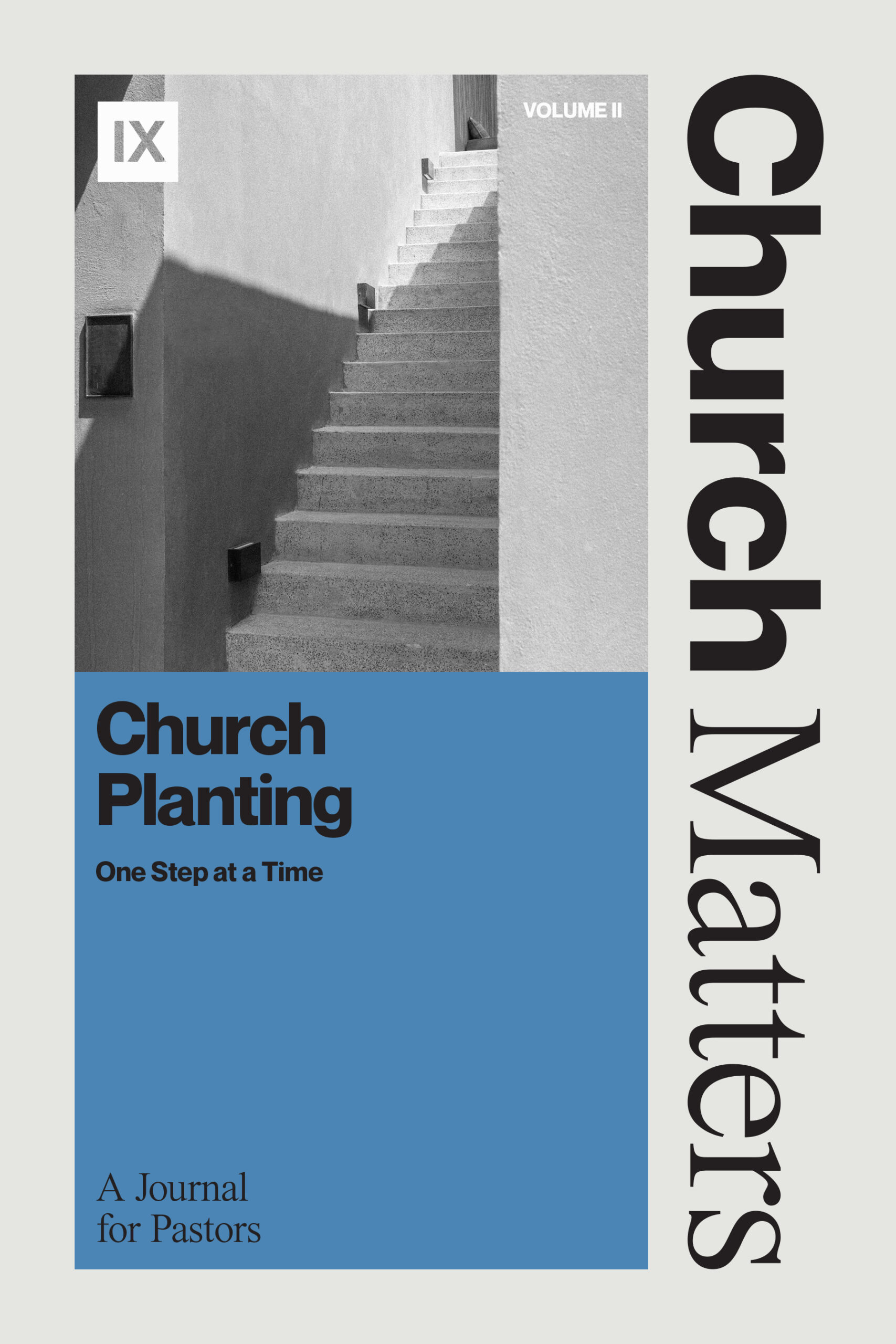Partnering Together to Plant
While much of the conversation around cooperation in the New Testament occurs in descriptive language, John’s third epistle raises cooperation to the level of imperative: “we ought to support people like these, that we may be fellow workers for the truth” (3 John 8, emphasis added).
The conviction that independent churches should work interdependently with one another to plant new churches drove the Association of Irish Baptist Churches to form. In 1895, 27 Irish Baptist churches formalized themselves into an association after siding with Spurgeon and breaking from the Baptist Union amidst the Downgrade Controversy. Now 125 years later, that Association has grown by over 100 churches because of cooperation and sharing resources to establish new works.
Sometimes cooperation can be difficult among brothers. I grew up with three brothers and no sisters. We fought all the time. My poor mom basically lived in a male dormitory filled with WWF wannabes. I cannot help but wonder if my mom’s favorite passage was an adaptation of Psalm 133, “How good and sweet it is when the Akin brothers dwell in unity.” Now, though, I am incredibly close with my brothers, and we communicate almost every day. They are all involved in gospel ministry. Though our relationship used to be marked by competitiveness, today we do everything we can to make sure one another flourishes.
If that is true for biological brothers, how much more should it be true for those who are “not bound by blood ties alone but are brothers after the Spirit and in God?”[1]
Cooperation is built on a theological foundation. Pastors, we are brothers! This theological truth shows up in basically every New Testament epistle. And part of what the New Testament calls us to is cooperation in the mission that God has given to his church. While churches are independent and autonomous, they also are interdependent for the sake of those who don’t know the Lord. This is primarily accomplished through starting and strengthening churches.
The New Testament highlights at least two reasons for cooperation: 1) we can do better together; and 2) we can do more together.
1. BETTER TOGETHER
In the New Testament, churches partner together for mutual influence and help.
For example, in Acts 11 a report comes to the church in Jerusalem that a good number of Gentiles in Antioch have been converted, and they send one of their members named Barnabas to help the church in Antioch. When Barnabas arrives, he’s encouraged: “When he came and saw the grace of God, he was glad, and he exhorted them all to remain faithful to the Lord with steadfast purpose” (Acts 11:23).
Interestingly, Jerusalem does not send an Apostle but a helper; Jerusalem is not acting as an authority but a partner. Barnabas is glad to see the grace of God displayed through the flourishing of other churches. So he exhorts them to remain faithful with steadfast purpose. This is the sort of sharpening that should happen through our partnerships.
The churches of the New Testament also exercise doctrinal accountability with one another. Consider Acts 15. Some use this chapter to push hierarchical cooperation, but take a step back and observe the pattern of mutual partnership. Jerusalem does not call for the meeting. Antioch takes the initiative by sending Paul and Barnabas to Jerusalem. Luke records,
Paul and Barnabas and some of the others were appointed to go up to Jerusalem to the apostles and the elders about this question. . . When they came to Jerusalem, they were welcomed by the church and the apostles and the elders, and they declared all that God had done with them. (Acts 15:2b, 4)
The church at Antioch had been stirred up by troublesome teaching that threatened the gospel. To get greater clarity, they sought out counsel from another church. Through cooperation, both churches are sharpened by the clarifying of doctrine and practice.
The New Testament also records partnering for financial help in places like 1 Corinthians 16 and 2 Corinthians 8–9. Paul commends the churches of Macedonia for giving generously to the church at Jerusalem. Interestingly, these churches help the original church—the first ever church plant. Churches help one another because we are better together.
What might this look like in our day? It might look something like The Pillar Network: partnership and sharpening by welcoming other churches in matters of confessions, covenants, constitutions, philosophy of ministry, help, and finances for the starting and strengthening of churches. For instance, Pillar often helps both plants and revitalizations as they form new covenants, constitutions, staff policies, non-profit status, websites, payroll help, and more. Our goal is to model the collaboration we find in the New Testament.
2. MORE TOGETHER
Paul and others sought to obey the Great Commission through planting and strengthening churches all over the world. We should follow his lead.
We see this in Acts 13–14 as Paul and Barnabas go out to proclaim the Word (Acts 13:15–49), preach justification by faith (Acts 13:39), establish churches (Acts 14:23), and appoint elders (Acts 14:23). In Acts 16, the church at Lystra releases a faithful member named Timothy who is “well-spoken of by the brothers” (Acts 16:2). They do this so he can join Paul, a man commissioned by Antioch (Acts 13–14), and a partnership forms for starting and strengthening churches.
Likewise, Pillar, like so many other church networks, regularly gets to witness the blessing of cooperation. Recently, a Pillar church in North Carolina sent a young man they had trained to a Pillar church in South Carolina. Similarly, Pillar just helped a planter and the group of churches cooperating to help him establish his church plant. Over the course of six months, that planter preached at a handful of other Pillar churches in the area. The result? All six churches sent people and money to help establish the new work. Those sorts of stories happen again and again as churches send leaders to do everything from lead music to pastor.
This kind of partnering work is also consistent with what we see in the Epistle to the Romans. While this letter is rightly viewed as a theological masterpiece, Paul hammers home that he is writing for the sake of partnering together in the Great Commission. Paul writes in Romans 15:24, “I hope to see you in passing as I go to Spain, and to be helped on my journey there by you. . .” Paul saw partnership together with the Roman church as strategic to ongoing church planting. In fact, some have argued that Romans is one big missionary support letter.
CONCLUSION
It’s true that we can do far more together than apart, but we must be intentional in our efforts to partner together. Who knows what the Lord will do? What an immense privilege to serve the King together as brothers and sisters. May this unity for starting and strengthening churches lead to continued gospel fruit, “as indeed in the whole world it is bearing fruit and increasing” (Col. 1:6b).
* * * * *
[1] Aristides (The Apology of Aristides, translated by Rendel Harris [London: Cambridge, 1893].
Related Multimedia

Why Bad Polity Hurt My Church Plant
By Phil Newton









